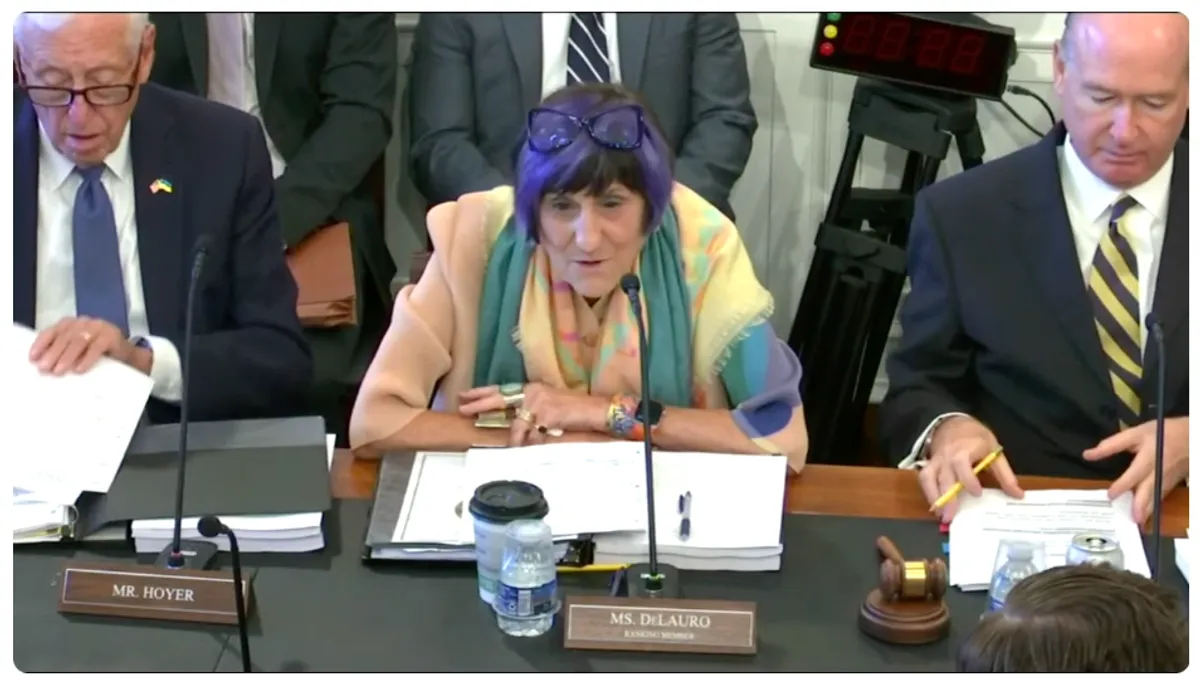Dive Brief:
- Federal education spending would be slashed by 13% — or $11 billion — under a fiscal 2025 bill passed Thursday morning by the Republican-led House education appropriations subcommittee.
- Additionally, the spending plan would prohibit the U.S. Department of Education from using federally appropriated funds to enforce the controversial Title IX rule that includes protections for LGBTQ+ students and employees in K-12 schools and colleges.
- Conservative members of the subcommittee said the funding measure would reduce wasteful spending and reject divisive programs. But Democrats on the panel said the plan "decimates support for children in K-12 elementary schools" and would dismantle public education.
Dive Insight:
The House Appropriations Labor, Health and Human Services, Education, and Related Agencies Subcommittee approved without amendment and by voice vote the Republican bill put forth the day before. It will be considered by the full Appropriations Committee at a later date.
The bill recommends $72 billion in discretionary spending for the Education Department, which is $10 billion below President Joe Biden's budget request.
Other GOP recommendations for K-12 include:
- Title I. A decrease of $4.7 billion, or 25%, for Title I grants to states for high-poverty schools. The reasoning, according to a detailed funding summary in the Republican measure is "student test scores continuing to decline despite annual increases to Title I and a $190 billion investment in schools during the pandemic."
- Duplicative programs. The elimination of 17 programs that "do not fulfill the core mission, tasks, and functions of the Department, including teacher training programs that send teachers to expensive weekend workshops, programs that support organizations that seek to undermine the unity of our country, and programs that are duplicative or narrowly tailored to a small set of recipients."
- Increases. The bill would add $30 million for special education, $10 million for charter schools, $10 million for career and technical education state grants, and $5 million for Impact Aid, which provides extra funding to school districts affected by a federal presence such as a military base. The spending plan also would provide increases for Head Start early education programs and for the Child Care and Development Block Grant.
During Thursday’s markup session, which lasted less than an hour, subcommittee chair Rep. Robert Aderholt, R-Ala., praised the bill's investments in early childhood and special education.
In an apparent reference to the Title IX rule, Aderholt said the spending plan "protects religious freedom and values by stopping the administration's regulation that would require schools to allow biological boys to compete against girls in women's sports programs."
The Education Department's Title IX athletics rule is not yet finalized, but the GOP's proposed spending prohibition would nonetheless cover the forthcoming rule, as well as a 2021 notice that clarifies Title IX enforcement in light of the U.S. Supreme Court's decision in Bostock v. Clayton County.
Democrats chided the Republican plan as one that "kicks teachers out of classrooms" and "cuts mental health support in schools while children struggle to access the services they need," according to a fact sheet released Wednesday.
Programs slated for elimination under the GOP proposal, according to Democratic leaders, include English Language Acquisition, Title II-A Supporting Effective Instruction state grants, and Social and Emotional Learning grants within the Education Innovation and Research program.
"This bill decimates support for kindergarten through 12th grade education and abandons college students and lower-income workers trying to gain an education or advance their career for the chance at the American dream," said Appropriations Committee ranking member Rosa DeLauro, D-Conn.
DeLauro added, "The majority has doubled down on their already tried, trodden and failed strategy of writing blatantly partisan bills that will never become law."
Appropriations Committee Chair Rep. Tom Cole, R-Okla., said that while the Republican majority in the House will write bills as conservatively as they can, moving a bill into law is a "journey."
"It starts here, but it doesn't end here," Cole said of the subcommittee's work. "It'll bend toward the middle at the end, because you got to get 60 votes in the United States Senate."
"It's possible to find agreement here," he added.
FY 2025 begins Oct. 1 and ends Sept. 30, 2025.










